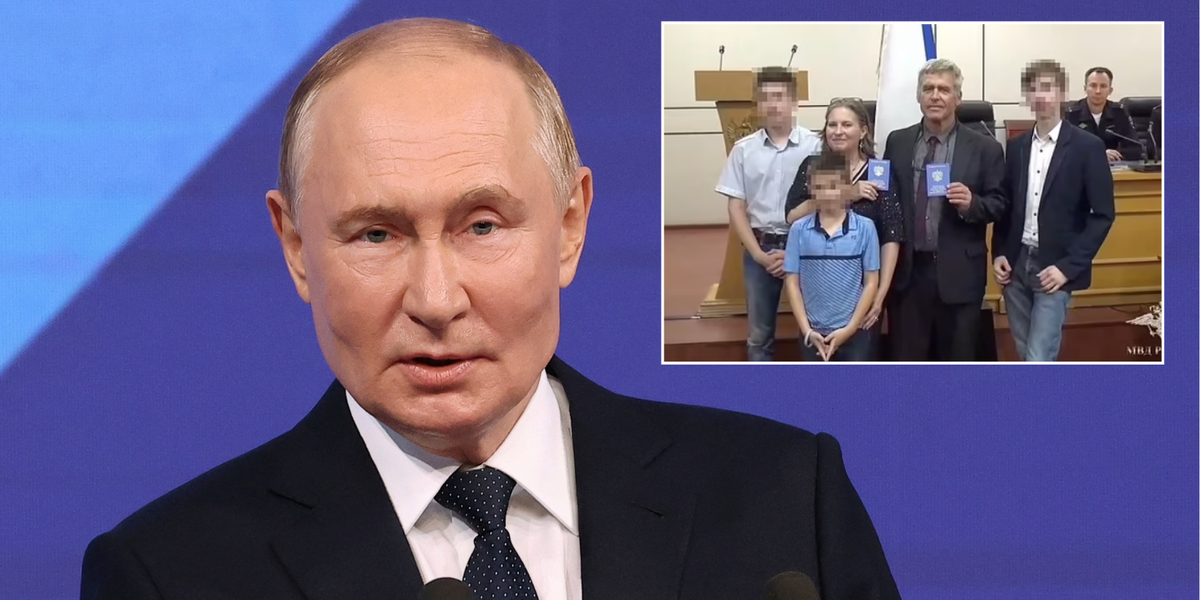British Families Fleeing to Russia: A Shift Towards "Traditional Values"
In an unexpected twist of geopolitical migration, reports have emerged that British families are seeking refuge in Russia, drawn by the Kremlin’s promise of "traditional values." This phenomenon has been framed as a response to what some perceive as the overwhelming influence of "woke" ideologies in the West. The Russian government has claimed that a small but notable number of individuals have already expressed interest in a new resettlement scheme designed to attract Westerners disillusioned with their home countries.
The Kremlin’s Immigration Initiative
In a bid to reshape its demographic landscape, the Russian government has recently overhauled its immigration laws. This initiative aims to entice Western families by offering fast-track residence permits to those who align with what President Vladimir Putin describes as "traditional Russian spiritual and moral values." The Kremlin has positioned this move as a form of "humanitarian aid," suggesting that it is providing a sanctuary for those fleeing the "destructive neoliberal ideological attitudes" prevalent in their home countries.
According to reports from the Kremlin-run Mash media outlet, 17 individuals from Scotland have already contacted Russian diplomats within just ten days of the announcement. This rapid response indicates a growing interest among some Western citizens in relocating to Russia, a country often viewed through a lens of skepticism in the West.
The Appeal of Traditional Values
The allure of Russia’s "traditional values" has resonated with certain families who feel alienated by the liberal agenda dominating Western societies. Major-General Irina Volk of the Russian Interior Ministry noted that the desire to relocate stems from a perceived erosion of moral and family values in American and British societies. This sentiment has been echoed by families like Leo Lionel and Chantel Felice Haer, who recently moved to Russia with their three children. They expressed gratitude towards Putin for creating an environment they believe is more conducive to family life.
Lionel described his move as finding "an arch of safety," emphasizing the importance of a stable environment for his family. His wife, Chantel, echoed these sentiments, expressing her excitement about building a future in Russia. Their story is not unique; another family from Canada, Arend Feinstra and his wife, also relocated with their eight children, citing safety concerns in Ontario as a driving factor for their decision.
The Practicalities of Relocation
The Russian government’s immigration reforms have eliminated several barriers that previously hindered Westerners from moving to the country. Notably, immigration quotas have been waived, and the requirement for language exams has been lifted for those seeking refuge from what they describe as "anti-woke" environments. This streamlined process is designed to make it easier for families to settle in Russia, although it remains unclear what obligations, if any, these new residents may face regarding military service amid ongoing conflicts.
A Complex Narrative
While the Kremlin’s narrative paints a picture of a welcoming haven for those disillusioned with Western ideologies, the reality of life in Russia is far more complex. The country has faced significant international criticism for its human rights record, political repression, and aggressive foreign policy, particularly in relation to Ukraine. The motivations behind these families’ decisions to relocate may be rooted in personal beliefs and experiences, but they also raise questions about the broader implications of such migrations.
Conclusion
The phenomenon of British families seeking refuge in Russia highlights a growing divide in global ideologies. As some individuals turn away from what they perceive as a liberal agenda in the West, they are drawn to a nation that promises a return to traditional values. While the Kremlin’s immigration initiative may attract a small number of families, it also underscores the complexities of identity, belonging, and the search for safety in an increasingly polarized world. As this narrative unfolds, it will be essential to monitor the experiences of those who choose to make this significant leap and the implications it may have for both their lives and the geopolitical landscape.
